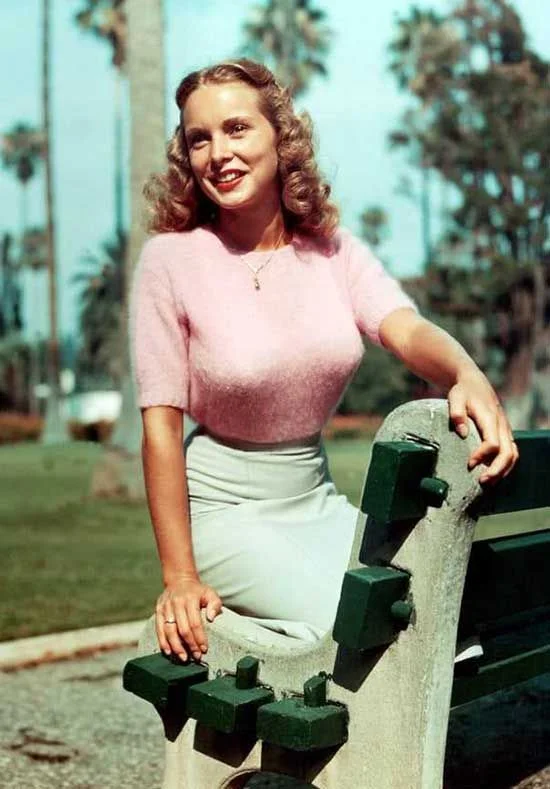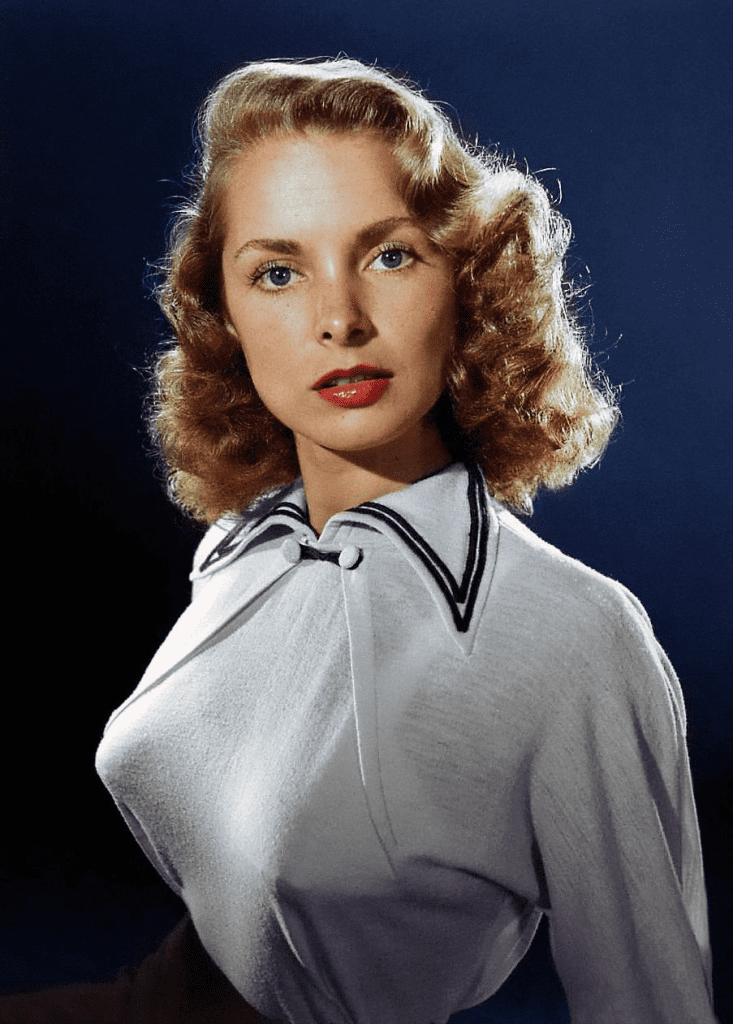Janet Leigh’s name is synonymous with the Golden Age of Hollywood, her presence immortalized through unforgettable performances and an enduring legacy. From her small-town beginnings in Merced, California, to becoming one of the most recognized faces of classic cinema, Leigh’s story embodies determination, talent, and a passion for the craft of acting. Let’s explore Janet Leigh’s rise to stardom, her iconic roles, and her impact on Hollywood and beyond.
Humble Beginnings: From Merced to the Silver Screen

Janet Leigh was born Jeanette Helen Morrison on July 6, 1927, in Merced, California. Raised as an only child, she grew up surrounded by love and support, with her parents encouraging her early passion for performing arts. Leigh’s childhood was filled with singing, dancing, and dreams of someday stepping into the world of acting. However, her journey to stardom began unexpectedly.
It was a chance encounter that would change her life forever. While skiing at a resort, a young Leigh was photographed, and that photo caught the eye of Norma Shearer, a renowned actress known for films like “The Divorcee” and “The Barretts of Wimpole Street.” Intrigued by Leigh’s striking beauty and potential, Shearer introduced her to a Hollywood talent agent, setting the stage for Leigh’s entrance into the movie industry.
The MGM Contract: Janet Leigh’s Big Break
In 1947, at the age of 18, Leigh signed a contract with MGM Studios, one of the biggest film studios of the time. Her first on-screen role came in “The Romance of Rosy Ridge,” where she charmed audiences with her natural talent and radiant presence. Leigh’s early performances captured the essence of a classic Hollywood starlet—talented, charismatic, and versatile.
As she continued to build her career, Leigh’s roles ranged from heartwarming dramas like “Little Women” to gritty thrillers like “Act of Violence.” Her ability to navigate different genres demonstrated her versatility and established her as one of the most promising talents in Hollywood’s golden era.
The Iconic Role: Marion Crane in Alfred Hitchcock’s “Psycho”
Janet Leigh’s most iconic role came in 1960 when she starred as Marion Crane in Alfred Hitchcock’s psychological thriller, “Psycho.” Her performance, particularly in the infamous shower scene, became one of cinema’s most memorable moments. The scene’s suspense, combined with Leigh’s compelling portrayal of a conflicted woman, etched her into film history.
The role earned Leigh a Golden Globe Award and an Academy Award nomination, cementing her status as a Hollywood legend. Even today, “Psycho” remains a benchmark in horror cinema, with Leigh’s chilling performance serving as a masterclass in acting.
Versatility and Longevity: Janet Leigh’s Expansive Filmography
Following the success of “Psycho,” Leigh continued to impress audiences with her roles in films like “The Manchurian Candidate” and “Night of the Demon.” Her ability to transition from suspenseful thrillers to political dramas and horror films showcased her remarkable range as an actress. Leigh was not just a Hollywood starlet but a skilled performer who could tackle complex characters and narratives.
Leigh’s diverse filmography is a testament to her enduring appeal, capturing audiences across different genres and generations. Her performances were marked by a blend of intensity and vulnerability, making her a standout figure in Hollywood’s ever-evolving landscape.
Janet Leigh’s Tumultuous Personal Life
Janet Leigh’s personal life was as eventful as her career. She married four times, with her most famous marriage being to actor Tony Curtis. The couple became one of Hollywood’s iconic power couples during the 1950s, known for their glamorous lifestyle and striking presence on and off the screen. Together, they had two daughters, Kelly Curtis and Jamie Lee Curtis, who both followed in their mother’s footsteps, becoming successful actresses in their own right.
Despite the pressures of fame and a high-profile marriage, Leigh was a devoted mother who prioritized her family. Her marriage to Curtis, however, ended in divorce, but it remained one of the most talked-about relationships in Hollywood’s history.
A Legacy Beyond the Screen: Janet Leigh as Philanthropist and Author

While Janet Leigh was known for her cinematic achievements, she was also an active philanthropist and writer. Her charitable work included contributions to causes such as the March of Dimes and the American Cancer Society, reflecting her commitment to making a difference beyond the film industry.
Leigh also penned her autobiography, “There Really Was a Hollywood,” which offered an intimate glimpse into her life, career, and experiences in Hollywood. The book not only provided insights into the highs and lows of her journey but also demonstrated her resilience and passion for storytelling.
The Lasting Impact of Janet Leigh on Hollywood
Janet Leigh’s legacy extends far beyond her own performances. As an actress, she broke boundaries and inspired countless others with her dedication, versatility, and commitment to her craft. Leigh’s performances, particularly in “Psycho,” have influenced generations of actors and filmmakers, making her a lasting symbol of Hollywood’s golden age.
Her daughter, Jamie Lee Curtis, has often spoken about her mother’s influence, attributing much of her own success to Leigh’s guidance and example. In this way, Janet Leigh’s impact is not just cinematic but deeply personal, affecting the next generation of performers.
Conclusion
Janet Leigh’s journey from a small town in Merced to the heights of Hollywood fame is a story of determination, talent, and an unwavering passion for acting. Her career was marked by iconic roles, a fearless approach to diverse genres, and a lasting impact on the entertainment industry. Beyond her on-screen achievements, Leigh was a philanthropist, author, and devoted mother, further adding to her multifaceted legacy.
As we reflect on Janet Leigh’s life and work, we celebrate not only her contributions to cinema but also her influence on popular culture and the art of storytelling. Her performances remain timeless, reminding us of the power of talent, resilience, and the magic of the silver screen.


